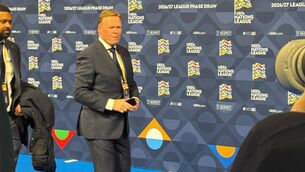No limits in a bold new era
“We’re a small country, with just 320,000 inhabitants,” Cardiff City’s Aron Gunnarson recently explained. “We need to be realistic.”
The exact reality, however, is that a nation of that size currently sits in second place in Group E, having last month claimed a 4-4 draw away to leaders Switzerland. It’s quite a transformation, given that Iceland were ranked 131st in the world just over 16 months ago.














